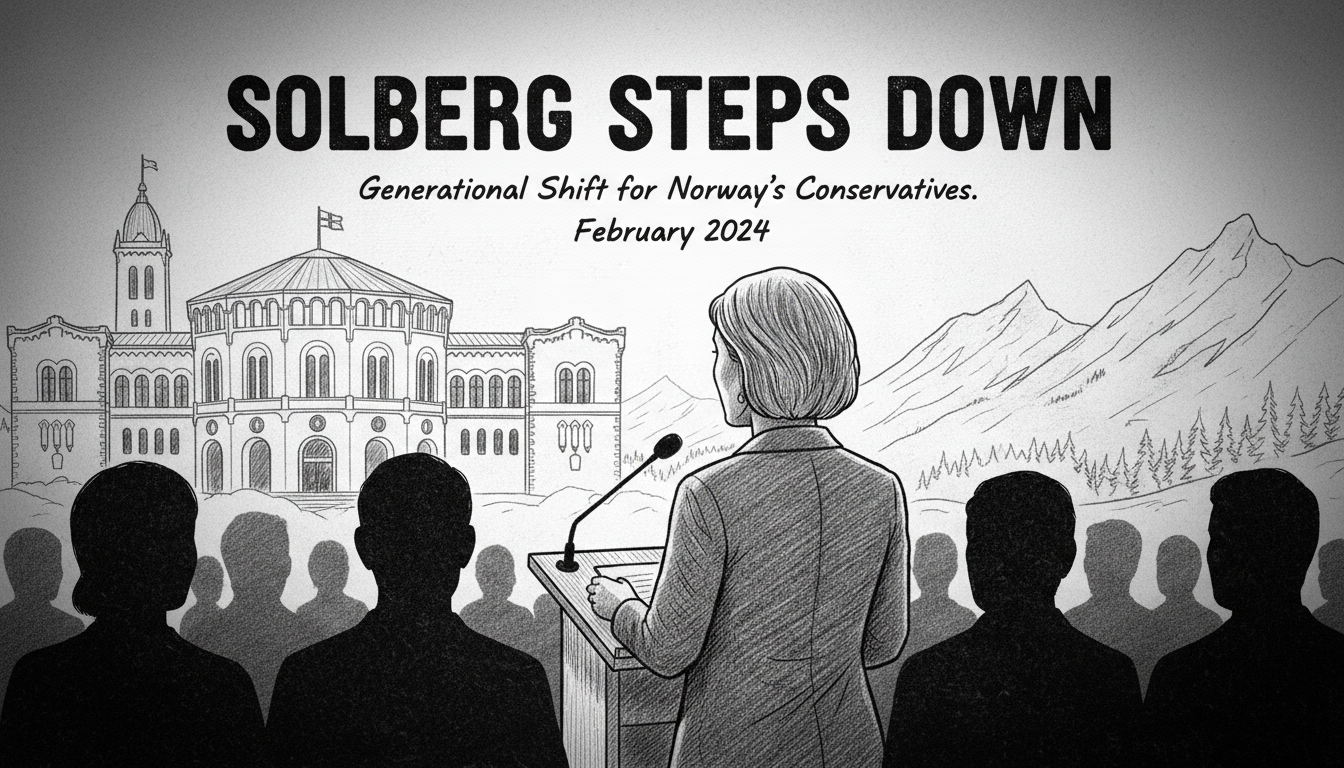Former Norwegian Prime Minister Erna Solberg has revealed she planned to step down as Conservative Party leader regardless of the recent election outcome. Solberg made this announcement during a parliamentary seminar discussion on Tuesday afternoon.
Solberg stated she knew since her re-election as party leader that she would resign at the first party conference following the national election. She emphasized this decision was firm regardless of whether her party won or lost the election. The Conservative leader explained that generational change within the party was necessary and inevitable.
Norwegian political tradition shows party leadership transitions often follow major electoral cycles. Solberg's planned departure marks a significant moment in Norwegian conservative politics. She has led the Conservative Party since 2004, making her one of Norway's longest-serving party leaders in modern history.
Solberg confirmed she will officially step down during an extraordinary party conference in February. The next regular party conference was originally scheduled for 2027, but her early resignation accelerates the leadership transition timeline.
This announcement comes during a period of political realignment in Norway. The Conservative Party faces challenges in rebuilding after recent electoral performance. Leadership changes in major Norwegian parties typically trigger broader political recalibrations across the political landscape.
Political analysts note that Solberg's departure opens opportunities for new leadership directions within Norway's conservative movement. The party must now navigate selecting a successor who can unite different factions while developing a compelling vision for future elections.
International observers of Nordic politics will watch this transition closely. Norway's conservative movement has historically influenced broader center-right politics across Scandinavia. The leadership change could signal new policy directions on key issues like energy, European relations, and economic policy.
Solberg's tenure included nearly eight years as prime minister until 2021. Her government oversaw significant economic reforms and managed Norway through the COVID-19 pandemic. The upcoming leadership contest will determine whether the party continues her political legacy or charts a substantially different course.
The extraordinary party conference in February will likely attract substantial media attention and internal party debate. Potential successors have yet to publicly declare their candidacies, but several prominent Conservative politicians are considered likely contenders for the leadership position.
Norwegian political parties typically conduct leadership elections through delegate voting at national conferences. The process involves several rounds of speeches, debates, and behind-the-scenes negotiations before a final vote. The outcome will shape Norwegian opposition politics for the coming parliamentary period.

